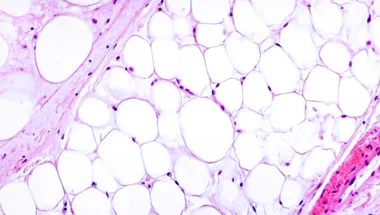Dr Jeannine Baumgartner
Senior Lecturer in Nutritional Sciences
Biography
Dr Jeannine Baumgartner is a Senior Lecturer in the Department of Nutritional Sciences at King's College London (KCL) and an Extraordinary Associate Professor in the Centre of Excellence for Nutrition at North-West University (NWU) in South Africa. She holds an MSc in Food Science and Nutrition from ETH Zurich, Switzerland, where she also obtained a PhD in Human Nutrition. Her PhD research was conducted in collaboration with the Centre of Excellence for Nutrition at NWU, which she later joined as a Postdoctoral Fellow (2012–2015), Senior Lecturer (2015–2017), and Associate Professor (2018). She subsequently returned to ETH Zurich as a Senior Scientist (2018–2022) before joining King’s in April 2022.
Research interests:
Jeannine’s research is guided by the paradigm that optimal nutrition during early life is critical for setting the physical and mental health trajectory of individuals and entire populations. Her primary research goal is to improve micronutrient, particularly iron, and omega-3 fatty acid nutrition in women of reproductive age, pregnant women, and paediatric populations globally, with the aim of optimising the health and well-being of women and children. She has extensive expertise in conducting human nutrition research (intervention, observational, and pre-clinical) in women and children across diverse settings, including South Africa, Switzerland, Thailand, and the UK.
A major focus of her recent and ongoing research is the application of stable iron isotope methodology to measure iron absorption, losses, and gains (balance) from iron interventions and whole diets, particularly in the context of dietary transitions and inflammatory conditions.
Jeannine serves on the Board of Directors of the International Society for the Study of Fatty Acids and Lipids (ISSFAL) and the editorial board of the European Journal of Clinical Nutrition.
Teaching:
Jeannine teaches across several modules within the BSc Nutritional Sciences and MSc Nutrition programmes. She co-leads the following modules: Nutrition throughout the Life Course (5BBN0222), Applied Nutrition (6MNT0302), and Public Health Nutrition (7MNT0003).
Research

HIV, metabolism and diet
HIV infection leads to a chronic low-grade inflammatory state, even in those where the virus is effectively controlled by antiretrovirals.

Maternal and child nutrition
Women and children have unique nutritional requirements. Emerging evidence highlights that nutrition during early life, especially the period from conception until the first two years of life, plays an important role in setting the health trajectory of an individual and even future generations.

Fats and fatty acids
Understanding of the role of dietary fats and fatty acids in human health is constantly evolving. Our department has a longstanding interest in the effects of manipulating dietary fat composition on cardiometabolic disease risk factors

Bioaccesibility & bioavailability of nutrients and bioactives
Iron deficiency (ID) and iron-deficiency anemia (IDA) are global problems that affect more than 2 billion people accounting for 0.8 million deaths annually worldwide. Consequently, sustainable food-based approaches are being advocated to increase the intake of foods with high iron content and bioavailability.

Mental health and diet
This research group aims to explroes the (1) mechanisms of food compounds, nutrients, foods, and whole diets on mental health and illness, and (2) the clinical efficacy and effectiveness of such nutritional interventions.

Mineral nutrition and metabolism
Since trace elements are involved in virtually all biological processes, biometals research is relevant and can be applied across the areas of biomedical and health research.

Enhanced Maternal and Baby Results with AI-supported Care and Empowerment (EMBRACE)
EMBRACE is a global study that aims to revolutionise maternal and early childhood health through interventions powered by artificial intelligence.
Project status: Starting

Safe and sustainable diets for a healthy body and mind (SSuDs)
This Research Interest Group on Safe and Sustainable Diets for a Healthy Body And Mind provides a unique opportunity for the King’s research community to address the challenges of safe and sustainable diets across a range of health outcomes
News
Christmas without the guilt – 12 health-boosting festive foods
Christmas is known as a time of indulgence and overeating, but some festive foods might actually be beneficial to our health.

Iron supplement absorption preserved in children with HIV and boosted by prebiotics
New research shows that iron from supplements and fortified foods is well-absorbed in children living with virally suppressed HIV, and that administering iron...

Researchers awarded NIHR funding to re-assess UK dietary reference values for iron
Researchers from King’s College London and the University of East Anglia, Norwich, have been awarded a £500,000 grant from the National Institute for Health...

Research

HIV, metabolism and diet
HIV infection leads to a chronic low-grade inflammatory state, even in those where the virus is effectively controlled by antiretrovirals.

Maternal and child nutrition
Women and children have unique nutritional requirements. Emerging evidence highlights that nutrition during early life, especially the period from conception until the first two years of life, plays an important role in setting the health trajectory of an individual and even future generations.

Fats and fatty acids
Understanding of the role of dietary fats and fatty acids in human health is constantly evolving. Our department has a longstanding interest in the effects of manipulating dietary fat composition on cardiometabolic disease risk factors

Bioaccesibility & bioavailability of nutrients and bioactives
Iron deficiency (ID) and iron-deficiency anemia (IDA) are global problems that affect more than 2 billion people accounting for 0.8 million deaths annually worldwide. Consequently, sustainable food-based approaches are being advocated to increase the intake of foods with high iron content and bioavailability.

Mental health and diet
This research group aims to explroes the (1) mechanisms of food compounds, nutrients, foods, and whole diets on mental health and illness, and (2) the clinical efficacy and effectiveness of such nutritional interventions.

Mineral nutrition and metabolism
Since trace elements are involved in virtually all biological processes, biometals research is relevant and can be applied across the areas of biomedical and health research.

Enhanced Maternal and Baby Results with AI-supported Care and Empowerment (EMBRACE)
EMBRACE is a global study that aims to revolutionise maternal and early childhood health through interventions powered by artificial intelligence.
Project status: Starting

Safe and sustainable diets for a healthy body and mind (SSuDs)
This Research Interest Group on Safe and Sustainable Diets for a Healthy Body And Mind provides a unique opportunity for the King’s research community to address the challenges of safe and sustainable diets across a range of health outcomes
News
Christmas without the guilt – 12 health-boosting festive foods
Christmas is known as a time of indulgence and overeating, but some festive foods might actually be beneficial to our health.

Iron supplement absorption preserved in children with HIV and boosted by prebiotics
New research shows that iron from supplements and fortified foods is well-absorbed in children living with virally suppressed HIV, and that administering iron...

Researchers awarded NIHR funding to re-assess UK dietary reference values for iron
Researchers from King’s College London and the University of East Anglia, Norwich, have been awarded a £500,000 grant from the National Institute for Health...

